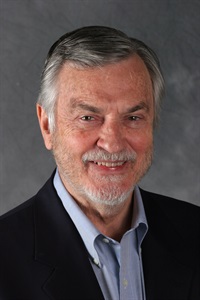CC95 Panel 13 - The Role of Empathy and Differentiation in Couples Therapy - Ellyn Bader, PhD; Harville Hendrix, PhD; David Schnarch, PhD
- Average Rating:
- Not yet rated
- Topic Areas:
- Topical Panels | Empathy | Differentiation | Couples Therapy
- Categories:
- Couples Conference 1995 | Couples Conference | Pioneers in Couples and Family Therapy
- Faculty:
- Ellyn Bader, PhD | Harville Hendrix, PhD | David Schnarch, PhD
- Duration:
- 2:19:19
- Format:
- Audio Only
- Original Program Date:
- Mar 04, 1995
- License:
- Never Expires.
Description
Description: This panel explores empathy and differentiation in couples therapy. Key themes include balancing differentiation with relational mutuality, emphasizing self-soothing, self-regulation, and developmental growth. The panelists debated therapeutic approaches, critiquing interventions like lock-step mirroring and no-exit contracts, and discussed the therapist’s role in challenging clients toward emotional maturity. The discussion highlights the interplay between therapist personality, technique, and therapeutic outcomes.
Educational Objectives:
- To compare and contrast clinical and philosophical perspectives of experts.
*Sessions may be edited for content and to preserve confidentiality*
Credits
Handouts
| Timestamped Transcript (668.4 KB) | 13 Pages | Available after Purchase |
| Timestamped Transcript (759 KB) | 16 Pages | Available after Purchase |
| Timestamped Transcript (883.4 KB) | 20 Pages | Available after Purchase |
| Ericksonian Learning Snapshot (248.4 KB) | 2 Pages | Available after Purchase |
Faculty

Ellyn Bader, PhD Related Seminars and Products
Ellyn Bader, PhD, is a founder and director of The Couples Institute in Menlo Park, California. As a clinical psychologist, workshop leader, author, and speaker, she is dedicated to helping couples create extraordinary relationships. Over the past 30 years she has trained therapists in couples therapy throughout the United States as well as Europe, Asia, South America, and Australia. She served as a Clinical Faculty in Stanford University School of Medicine for 8 years.

Harville Hendrix, PhD Related Seminars and Products
Harville Hendrix, PhD and Helen LaKelly Hunt, PhD are partners in life and work. Their lives and work are integrated in their commitment to the transformation of couples and families and to the evolution of a relational culture that supports universal equality. Harville is co-creator of Imago Relationship Therapy and co-founder of Imago Relationships International. Chancellor of the Imago International Institute and emeritus board member of IRI. Dr. Hendrix has received an honorary Doctor of Humane Letters from Mercer University, Macon, GA, the Distinguished Service Award from the American Association of Pastoral Counselors, and the Distinguished Contributors Award by the Association for Imago Relationship Therapy. His latest book, written with his wife, Helen Hunt, is Receiving Love.
David Schnarch, PhD Related Seminars and Products
DAVID SCHNARCH, PhD, is a licensed clinical psychologist and Director of the Marriage & Family Health Center in Evergreen, Colorado. Dr. Schnarch is widely recognized as a leader in integrating sexual and marital therapy. In 1997, he became the first recipient of the AASECT Professional Standard of Excellence Award.


